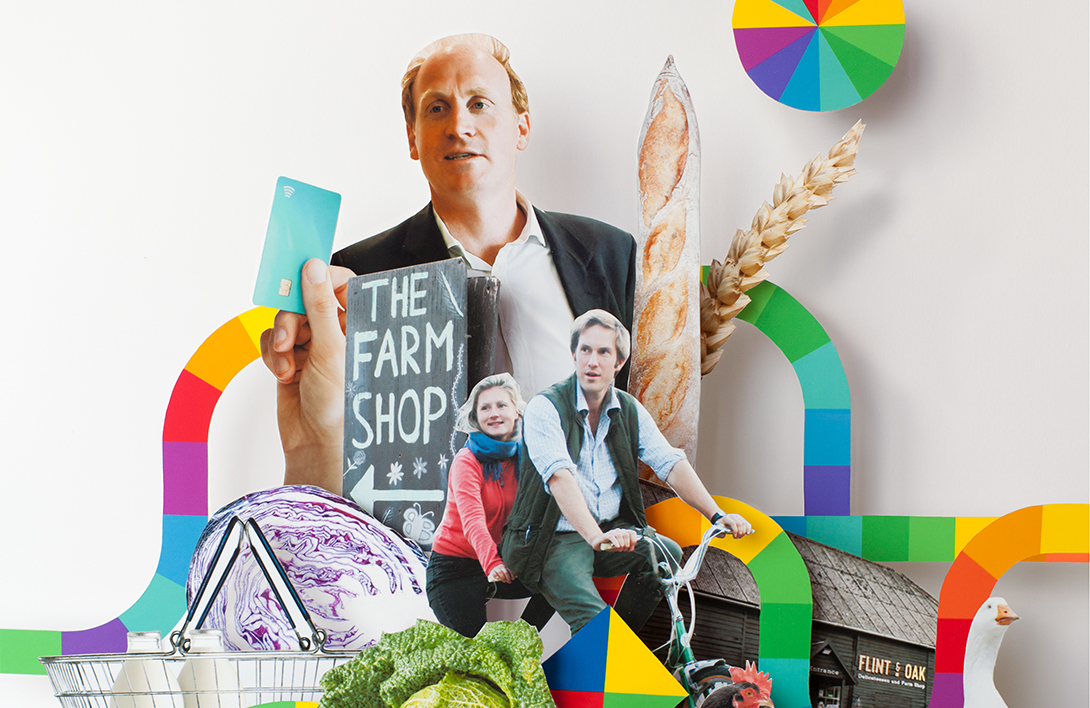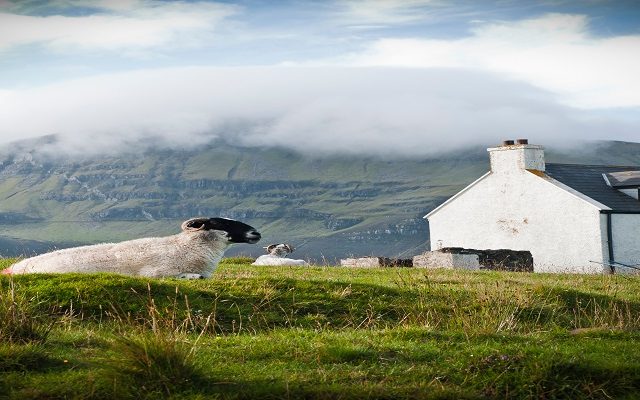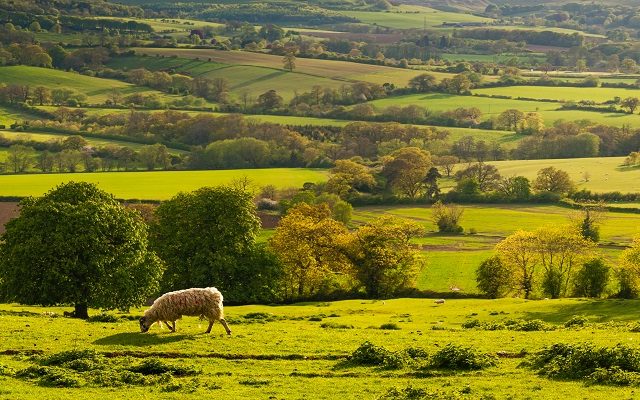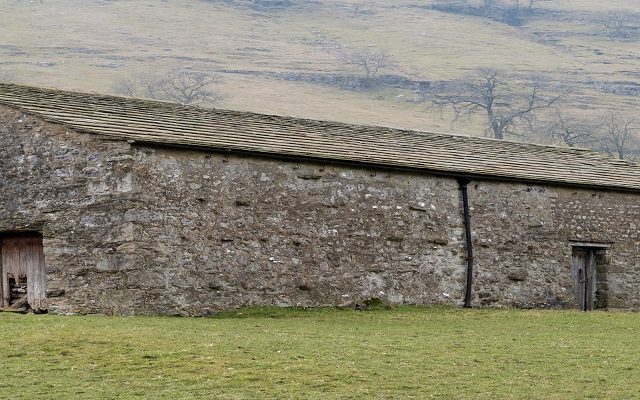How Farmshops Have Innovated During the Covid-19 Crisis
The farm retail sector has reinvented itself during the Covid-19 crisis, stepping up to meet rising demand for farmshop produce from local communities.
Among the uncertainties and worries of present times, it is a heartening story and a reminder of the valuable contribution that farms and estates can make to society.
‘It was our Spitfire moment.’
That’s how Henry Warde says his team at the Flint & Oak delicatessen and farmshop viewed the situation when it became apparent how serious the coronavirus crisis was going to be.
They had been building the business steadily over the past three years, focusing on selling locally-sourced, seasonal produce from a converted milk parlour on the 2,500-acre Squerryes estate in Kent, which also operates a vineyard, winery and wedding business.
But as the UK entered the new world of lockdown and news reports became dominated by pictures of empty supermarket shelves, it was clear that it was no longer business as usual.
‘There was inevitably an element of danger associated with being on the frontline, but it felt like our moment to make a difference,’ he says. ‘I said to the team: Stop everything else and let’s make this happen.
‘I’ve always tried to impress on my children the importance of helping others and this crisis has demonstrated that to them first-hand. It’s at moments like this when businesses have to step up, be outward-focused and think about others. This was a moment when we could have a real impact and change people’s lives for the better.
‘It was all very intense, but I also felt the businesses that kept fighting though lockdown would be the ones that were match fit when a semblance of normality returned.’
The award-winning business reallocated its estate team to farmshop-related roles and quickly developed a click-and-collect website offering, enabling shoppers who did not want to come into the shop to buy food without even needing to leave their car. With the weddings business on hold and the restaurant closed, the estate chef was asked to focus on developing new products to sell through the farmshop.
Food orders shot up, with turnover trebling almost overnight, says Henry. While he recognises that this initial spike in the early stage of the crisis was temporary, he says the situation has prompted a new business model for the medium and long term.
‘Understandably, our community wasn’t buying lovely wine because there was nothing to celebrate, but that customer base has been buying food from us and we’ve definitely picked up new customers who were avoiding super-markets and hunting out local suppliers.
‘Everyone is going to remember that period for the rest of their lives and, if we are with our community in the bad times, we hope they will be with us in the good times,’ he says.
Technology
Another business that has gone through huge change in a very short time is White House Farm farmshop at Sprowston in Norfolk, owned and run by Charlotte and Oliver Gurney.
They took the decision to close the doors of their farmshop to the public, introducing an order and collection service so they could carry on serving the local community with reduced levels of contact.
Getting the technology in place to process orders was a hurdle because they didn’t have an existing online portal. But Charlotte’s brother – an app developer – helped create an online ‘picking and packing’ service.
‘The speed of change was unprecedented, but any awful challenge brings out the best in people,’ says Charlotte, who has spent six years developing the popular business with former Royal Marine Oliver, turning a pick-your-own and some ‘ancient and crumbling’ buildings into a thriving café, butchery and farmshop.
‘We’ve converted buildings to let out to other businesses such as a children’s nursery, a beautician and a dance studio and tried to create a real community here, so part of my reason to stay trading was to keep the flag flying for the brand and the community,’ she says.
Although there was the potential upside from the rise in turnover, there was also a big risk as it was so hard to predict orders. The Gurneys faced the danger of being left with thousands of £s worth of perishable products on their hands.
‘When you place big orders at Christmas, you know you are going to sell those items because you’ve studied the previous years’ numbers before ordering, but we couldn’t do that because this situation was unprecedented.’
Another key change during this period was the increase in card payments and a shift away from cash – a trend Charlotte has been keen to encourage, as handling cash can be time-consuming and inconvenient.
The couple was also conscious that, while they as entrepreneurs were used to exposing themselves to risks and challenges, they were asking their staff to get on board with a huge amount of change.
‘They did it fantastically, though, and we’ve all really gelled and it feels we’ve done something we’ll look back on and be proud of.’
She describes the first ten days of the crisis as ‘terrifying’ and admits there were times when it was tempting to stop trading.
‘But we felt a huge sense of responsibility that we should keep going and we’ve seen a massive demonstration of loyalty from customers as a result.
‘At a time of national emergency, food is morale,’ she adds. ‘Those first days and weeks of lockdown particularly were a time of great fear and we wanted to make sure people could carry on getting the food they needed and enjoyed, to provide them with a semblance of normality in an uncertain world.’
Personal service
During a time of turmoil, customers very much appreciate the personal touch that farmshops can provide, points out Catriona Farquharson at the Finzean Farmshop near Banchory in Aberdeenshire. It has kept its doors open throughout, but with reduced opening hours, and introduced both a delivery and a collection service.
‘You could see people’s sense of relief that we were still operating,’ says Catriona. ’Whether it’s widows or mums with young families whose husbands were stuck offshore, a lot of people are on their own. Taking time to talk to them was more important than ever.
‘I would have felt guilty if people had rung us up and we hadn’t been able to help, plus it was important to continue supporting our suppliers. There’s been a real camaraderie between us all, whether that’s our team, our customers or our suppliers. We’ve all pulled together.’
It’s been an exhausting and challenging time for the family and the team, Catriona acknowledges. But with other estate enterprises such as holiday cottages and let property feeling the impact of the crisis, the farmshop has kept revenue coming in, at a difficult time.
She hopes that the pandemic could change the way people view food in the long term, prompting them to shop and eat in a more ‘traditional’ way or how many do in France, buying only what they need, cooking more, eating more wholesomely, wasting less and relying less on microwaves.
‘Long term, we really hope it might make the nation buy more local food. We used to struggle, for example, to sell yoghurt from one local supplier even though it was delicious because people would buy it from the supermarket out of habit. Now, so many people have tried this yoghurt that they’ll keep buying it because once they’ve tasted it there’s no going back.’
Long-term implications
On the Albrighton Estate in Shropshire, the Battlefield 1403 farmshop is already evaluating changes to its long-term strategy as a result of the crisis.
This leading business, which incorporates a butchery and café alongside the farmshop, plus a second café in Shrewsbury, is another that has reinvented itself in the face of adversity.
Facing a big drop in revenue (the café at the farmshop and the one in Shrewsbury, which both closed in line with government guidelines, usually account for about 40% of annual turnover), they quickly introduced a food delivery option – identifying key products, compiling an online list, converting the café into a deliveries/collections point and getting together a fleet of vehicles.
‘Luckily we have resources on the farm such as staff and vehicles to draw from,’ says Jeremy Jagger, a partner in the business.
The shop remained open, although they opted to close on Sundays to give the team a regular, much-deserved rest.
‘We had to introduce changes without the benefit of research and development time, but when we come out of the other end, we’ll be a better business for it,’ says Jeremy. ‘The staff will be more multi-skilled and flexible, our stock control will be tighter and we’ll have a delivery offering, although we’ll need to crunch the numbers further to understand the exact economics of this.’
Communication with customers has been key as the situation has been evolving, with the website, emails and social media vital in terms of keeping people informed. ‘Luckily, we have a relatively strong social media presence – as a food-related business, Instagram in particular has been great for us.
‘Necessity is so often the mother of invention,’ concludes Jeremy. ‘We just needed to pull out all the stops.’
Such creativity and agility is a key strength of the farm retail sector, according to Rob Copley, chairman of the Farm Retail Association.
He believes that positives will come out of the Covid-19 pandemic. ‘This situation has brought to the forefront just how important farmers and farmshops are to the nation.
‘We believe that new customers will see how friendly their local farmshops have been during this time of crisis and, now they’ve enjoyed the personable service and fantastic fresh local produce, many of them will choose to keep coming back.’
This article first appeared in the Spring/Summer 2020 issue of Land Business. For more download the full Land Business Spring/Summer 2020 publication.






